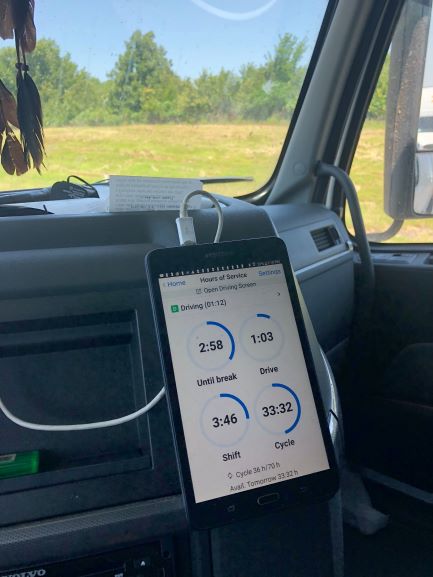House Democrats propose delay of hours-of-service (HOS) rules

Story by: at FreightWaves.com
The newly minted hours-of-service (HOS) final rule will require an extensive safety review that would delay the effective date of the rules by up to 18 months or even longer if Democrats on Capitol Hill have their way.
A “comprehensive review” of the final rule, which became official on Monday and is currently scheduled to go into effect on Sept. 29, was included in the Investing in a New Vision for the Environment and Surface Transportation in America (INVEST in America) Act, a five-year, $494 billion surface transportation reauthorization bill unveiled Wednesday by the U.S. House Transportation & Infrastructure Committee.
“I am proud to bring together the ideas and the needs into one transformational bill that will catapult our country into a new era of how we plan, build and improve U.S. infrastructure,” commented Committee Chairman Peter DeFazio, D-Oregon, in rolling out the 864-page bill.
Language within the legislation, which authorizes over $3 billion for motor carrier safety assistance and operations programs for fiscal years 2022 to 2025, states that the secretary of transportation “shall delay the effective date of the final rule published on June 1, 2020 … until 60 days after the date” on which the secretary submits the review to Congress. The review itself is to start no later than 60 days after the reauthorization goes into effect.
In carrying out the review, “the Secretary, in consultation with State motor carrier enforcement entities, shall undertake a statistically valid analysis to determine the safety impact, including on enforcement, of the exemptions, waivers, or other allowances” that limit the applicability of the final rule, according to language in the bill.
The study would be conducted by using either available data or data collected from motor carriers and drivers on fatigue-related incidents “and other relevant safety information related to hours of service” among carriers and drivers allowed to operate under each exemption or waiver.
The bill’s language requires the Secretary of Transportation to publish the findings of the review in the Federal Register, and to include a public comment period, no later than 18 months after the start of the review.
A potential challenge to the rule by safety advocates questioning its effectiveness could also cause a lengthy delay or possible changes to the final rule.
The total legislation package, which has yet to be vetted by Republicans on the committee, is a streamlined version of a $760 billion infrastructure “strategy” announced by House Democrats in January. It would be used for negotiating with the Senate over that body’s $287 billion proposal to replace the FAST Act, which is set to expire at the end of September.
Acknowledging that the bill is in its early stages, David Heller, vice president of government affairs for the Truckload Carriers Association, was wary about any delay in the HOS final rule.
“Allowing drivers to adjust their day, particularly the new flexibility provided in the sleeper berth provision, is a major benefit to truckload carriers as a whole,” Heller told FreightWaves. “Any delay in the final rule would mean waiting that much longer to gain that flexibility.”
Read the full story HERE
Source and credits: freightwaves
iTrucker / Mario Pawlowski / itrucker.com




1wrestle
gay sissie chat https://bjsgaychatroom.info/
gay black dating apps https://gaypridee.com/
gay chat roullrtte https://gaytgpost.com/
gay dating argentina https://speedgaydate.com/
highest paying slots https://2-free-slots.com/
hit it rich casino slots https://candylandslotmachine.com/
hollywood slots in bangor https://slotmachinesforum.net/
free online slots site https://beat-slot-machines.com/
big fish free slots https://411slotmachine.com/
doubledown casino slots https://slotmachinegameinfo.com/
writing your dissertation in a week https://buydissertationhelp.com/
help dissertation https://help-with-dissertations.com/
writing a doctoral dissertation https://mydissertationwritinghelp.com/
dissertation in practice https://helpon-doctoral-dissertations.net/